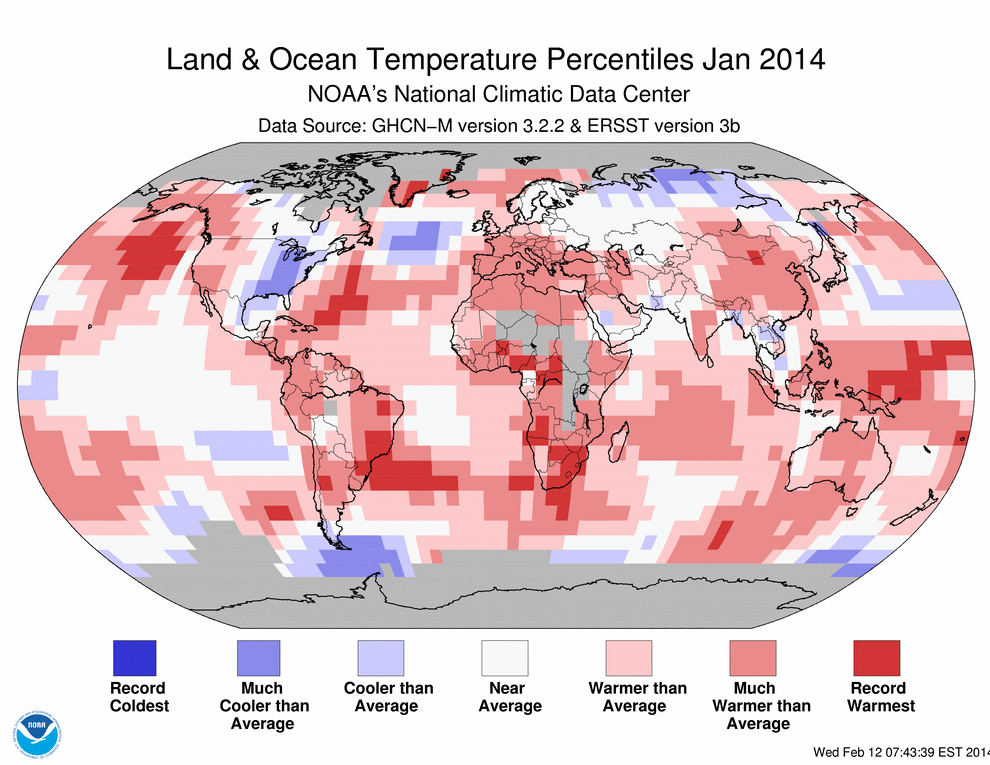A lot of folks in the eastern half of the United States are breathing a sigh of relief that spring is just around the corner. Average temperatures this winter were among the Top 10 coldest in some parts of the Upper Midwest and South. More than 90 percent of the surface of the Great Lakes is frozen, the highest in 35 years.
But while East Coast and Midwest kids have been sledding and their parents have been shoveling, it has not been cold everywhere. In fact, many areas are unusually warm.
In Alaska, January temperatures were as high as they have been in 30 years. The Iditarod dogsled race was especially treacherous this month because of a lack of snow. Crews had to stockpile and dump snow on the ground at the finish line in Nome, where temperatures earlier this winter broke a record.
Globally, January was the fourth warmest on record – really – despite pockets of well-below-normal temperatures in parts of the United States. According to the National Oceanic and Atmospheric Administration (NOAA), most areas of the world experienced warmer-than-average monthly temperatures. For example:
- China experienced its second warmest January on record.
- France tied its warmest January.
- Parts of Brazil and Australia saw record heat.

